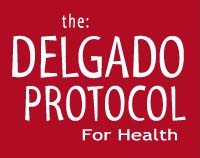How to Boost Health, Heal Injuries and Slow Aging with Nitric Oxide
Nitric oxide is a molecule that sends signals throughout your entire body, helping your 50 trillion cells communicate with each other. Nitric oxide levels typically start to decline in your mid-to-late 20s, and continue to decline by approximately per decade. This reduction can cause a range of negative health effects including: reduced memory, lower immunity, increased inflammation levels, sleeping issues, and lower strength and endurance, to name a few. To learn more about how nitric oxide effects your health, how to test your levels, and how to boost nitric oxide levels naturally, read-on.
How Nitric Oxide Effects Chronic Disease, Aging and Injury Recovery
Low nitric oxide is correlated with the onset of age-related diseases such as Alzheimer’s, Hypertension, and Type-2 diabetes. The reason for the correlation is that nitric oxide signals stem cells to reproduce, and stem cells need to divide and reproduce in order to repair the worn out and damaged cells and tissues that trigger disease. Accelerated aging and a reduced ability to recover from injuries as you get older are two other major consequence of low nitric oxide levels, because the reduced stem cell reproduction inhibits the body’s ability to repair and regenerate new, healthy cells.
Nitric Oxide and Heart Disease
 Nitric oxide is considered the most important chemical compound for cardiovascular health. Low nitric oxide levels causes the blood vessels to restrict, which leads to a lack of oxygen and blood flow, and consequently, higher blood pressure. Low nitric oxide also encourages red blood cells to clump together and creates dangerous blockages and clots, increasing the risk for arterial disease. Since nitric oxide signals the stem cells to replicate and repair, you can help heal damaged heart tissue and enhance post-heart attack recovery, by simply optimizing nitric oxide levels.
Nitric oxide is considered the most important chemical compound for cardiovascular health. Low nitric oxide levels causes the blood vessels to restrict, which leads to a lack of oxygen and blood flow, and consequently, higher blood pressure. Low nitric oxide also encourages red blood cells to clump together and creates dangerous blockages and clots, increasing the risk for arterial disease. Since nitric oxide signals the stem cells to replicate and repair, you can help heal damaged heart tissue and enhance post-heart attack recovery, by simply optimizing nitric oxide levels.
Nitric Oxide and Sexual Dysfunction
Sexual dysfunction is associated with poor cardiovascular health, because unhealthy and aged arteries prevent blood from flowing to the sexual organs. Nitric oxide is required for women to achieve an orgasm, because it helps to dilate the blood vessels in the clitoris and the genitals so that they become responsive. Similarly, it is required for an erection, and erectile dysfunction can often be reversed by optimizing nitric oxide levels.
2 Simple Techniques to Boost Nitric Oxide
Diet:
- Diet is a major determinative factor of your nitric oxide levels. In order to boost nitric oxide, you should consume a wholefoods, plant-based diet, with at least 12 servings of vegetables daily. Also, by adding https://unitynaturals.com/product/stay-young-tablets-ebook/ to your daily supplement intake, your nitric oxide levels will increase drastically. Dark leafy greens and beets are considered especially beneficial because they are high in dietary nitrates, and the body converts nitrates into nitric oxide. Other nitric oxide boosting foods include dark chocolate, pomegranate juice, watermelon, citrus, lettuce, garlic and walnuts. Finally, vastly reduce or eliminate processed foods, oils, animal products and high fat foods because they lead to inflammation which disrupts the production of nitric oxide.
Exercise:
- Exercise causes the heart to pump harder to supply oxygen to the body, increasing blood flow, which in turn causes more nitric oxide to be released. Although a blend of cardio, strength building and stretching is recommended for optimal health, studies show that moderate intensity exercise is the most helpful when it comes to boosting nitric oxide levels. Ideally, you should aim for about an hour a day of physical activity.
2 Surprising Things That Prevent the Production of Nitric Oxide
A Lack of Mouth Bacteria:
- Dietary nitrates are the biggest contributors to nitric oxide production. However, consuming these foods is not always enough because you have to have certain internal pathways intact in order for the nitrates to boost nitric oxide levels. More specifically, nitrates have to be metabolized by bacteria, so if you don’t have the right oral bacteria, you’re never going to get a nitric oxide benefit from your diet. Antiseptic mouthwashes containing chlorhexidine destroy the bacteria in your mouth, and should therefore be avoided. In fact, research shows that using antiseptic mouthwashes actually causes an increase in blood pressure, and its theorized that its effect on nitric oxide levels is the reason.
Proton Pump Inhibitors:
- Proton pump inhibitors which are used for stomach ulcers and acid reflux, work by reducing stomach acid production. This is problematic because reducing stomach acid shuts down the necessary pathways for making nitric oxide, which results in a nitric oxide deficiency. Not surprisingly, there is evidence now showing people who use proton pump inhibitors for an extended period of time have a higher incidence of heart attack and stroke.
How to Test For and Treat a Nitric Oxide Deficiency
You can take a simple and free questionnaire to help instantly determine if you are low in nitric oxide here: https://unitynaturals.com/quiz/nitric-oxide/. For a more precise assessment of your nitric oxide levels you can purchase a nitric oxide indicator strip which is a simple saliva test.
*The above article is based on an interview between Dr. Nick Delgado and nitric oxide expert–Dr. Nathan Bryan





